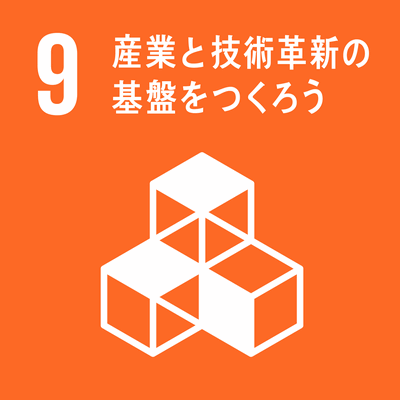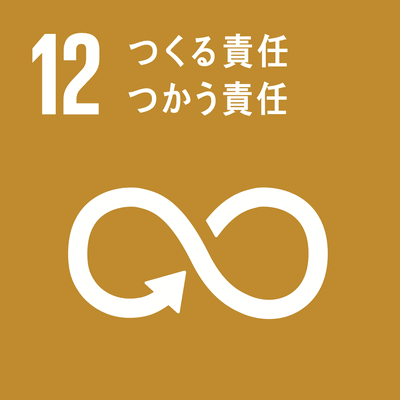シラバス表示
シラバスの詳細な内容を表示します。
→ 閉じる(シラバスの一覧にもどる)
科目の基本情報
| 開講年度 | 2022 年度 | |
|---|---|---|
| 開講区分 | 工学研究科(博士前期課程)分子素材工学専攻 | |
| 領域 | 主領域 : F | |
| 受講対象学生 |
大学院(修士課程・博士前期課程・専門職学位課程) : 2年次 |
|
| 選択・必修 | ||
| 授業科目名 | 有機機能化学演習Ⅱ | |
| ゆうききのうかがくえんしゅうに | ||
| Seminar in Organic Functional Chemistry II | ||
| 単位数 | 2 単位 | |
| ナンバリングコード | EN-ORBI-5
|
|
| 開放科目 | 非開放科目 | |
| 開講学期 |
前期 |
|
| 開講時間 |
火曜日 1, 2, 3, 4時限 |
|
| 授業形態 |
対面授業 * 状況により変更される可能性があるので定期的に確認して下さい
「オンライン授業」・・・オンライン会議ツール等を利用して実施する同時双方向型の授業 |
|
| 開講場所 | ||
| 担当教員 | ○岡崎 隆男(工学研究科分子素材工学専攻)、平井 克幸(工学研究科分子素材工学専攻) | |
| OKAZAKI, Takao; HIRAI, Katsuyuki | ||
| SDGsの目標 |
|
|
| 連絡事項 | * 状況により変更される可能性があるので定期的に確認して下さい |
|
学修の目的と方法
| 授業の概要 | 有機化合物の機能性材料への応用と問題点を最新の文献を調査、精読し、整理体系化して討論する。 (Course description/outline) Continuation of the Seminar in Organic Functional Chemistry I. This course teaches the background necessary to research advanced topics of organic functional materials by the presentation of graduate students of the latest research articles. Primary emphasis will be placed on the development of the skill of experimental strategy, literature reviews, and presentation of synthesis, application, and future prospects of functional organic materials. |
|---|---|
| 学修の目的 | 有機機能化学特論の講義内容の理解度を確認し、有機化合物の機能性材料に関する理解を深める。 (Learning objectives) A goal is to advance the understanding of the lecture on organic functional chemistry, and the students are able to research the topics of advanced functional organic materials. |
| 学修の到達目標 | 有機機能性材料についての理解を深め、その応用力を高める。また英語論文の読解力が向上する。 (Achievements) Students can advance their understanding of the chemistry of functional organic materials and enhance research skills. In addition, their reading comprehension of English research articles can be improved. |
| ディプロマ・ポリシー |
|
| 成績評価方法と基準 | 出席と討論状況、発表と課題レポートに基づいて評価する。 (Grading policies and criteria) Class attendance and attitude in class, Presentations and/or projects. |
| 授業の方法 | 演習 |
| 授業の特徴 |
プレゼンテーション/ディベートを取り入れた授業 教員と学生のやり取りは日本語でも、英語による論文や教材の講読を含んだ授業 |
| 授業改善の工夫 | (Ideas for improving classes) |
| 教科書 | 新着の化学関連ジャーナル。 (Textbooks) Recent chemistry journal |
| 参考書 | (Reference materials) M. B. Smith, J. March, March's Advanced Organic Chemistry, Reactions, Mechanisms, and Structure, 6th ed. J. W. Zubrick, The Organic Chem Lab Survival Manual. A Student's Guide to Techniques. |
| オフィスアワー | 毎週月曜日9:00~10:00、工学部分子素材工学棟3階3302室。 (Office hour) Monday 9:00-10:00, room No. 3302, 3F, Building of Chemistry for Materials. |
| 受講要件 | 学部の専門教育科目の必修科目を完全に理解していること。 (Prerequisites) This course requires a full understanding of university level chemistry. |
| 予め履修が望ましい科目 | 有機機能化学特論、有機機能化学演習Ⅰ (Courses encouraged to take in advance) Organic Functional Chemistry, Seminar in Organic Functional Chemistry I |
| 発展科目 | 有機物性化学特論、有機物性化学演習ⅠおよびⅡ (Advanced courses) Organic Chemistry for Materials, Seminar in Organic Chemistry for Materials I and II |
| その他 |
英語対応授業である。 (This course is English-supported.) |
授業計画
| MoodleのコースURL |
|---|
| キーワード | 発光、伝導性、有機合成、反応機構、理論計算 |
|---|---|
| Key Word(s) | Photoluminescence, conductivity, organic synthesis, reaction mechanism, theoretical calculations |
| 学修内容 | 有機化合物の機能性材料に関する基礎と応用を学修する。 第1回 最新の英語研究論文 第2回 英語論文の構造と精読方法 第3回 発表英語論文の関連資料の収集 第4回 発表関連論文の学習 第5回 英語論文の発表資料作成 第6回 発表と討論の方法 第7回 機能性材料の学習 第8回 有機化学合成の学習 第9回 構造有機化学の学習 第10回 機器分析化学の学習 第11回 英語論文の作成基礎 第12回 発表と討論の発展 第13回 ショートプレゼンテーション 第14回 学会要旨の作成 第15回 学会発表 (Course contents) Ⅰ. Learning of the basics on functional materials made of organic materials Ⅱ. Determination of subjects and collection of related literature Ⅲ. Careful reading and creating an abstract Ⅳ. Presentation and Q & A Ⅴ. Creating a review based on the subject Ⅵ. Final presentation and discussion Ⅶ. Proposal of research theme based on the subject |
| 事前・事後学修の内容 | 新着ジャーナルを調査して興味ある論文を選び、その内容に基づいて発表資料を作成する。 第1回 最新の英語研究論文の予習と復習 第2回 英語論文の構造と精読方法の予習と復習 第3回 発表英語論文の関連資料の収集の予習と復習 第4回 発表関連論文の学習の予習と復習 第5回 英語論文の発表資料作成の予習と復習 第6回 発表と討論の方法の予習と復習 第7回 機能性材料の学習の予習と復習 第8回 有機化学合成の学習の予習と復習 第9回 構造有機化学の学習の予習と復習 第10回 機器分析化学の学習の予習と復習 第11回 英語論文の作成基礎の予習と復習 第12回 発表と討論の発展の予習と復習 第13回 ショートプレゼンテーションの予習と復習 第14回 学会要旨の作成の予習と復習 第15回 学会発表の予習と復習 (Contents for pre and post studies) Survey recent research articles, read interesting papers, and create presentation materials based on the contents. |
| 事前学修の時間:180分/回 事後学修の時間:60分/回 |

